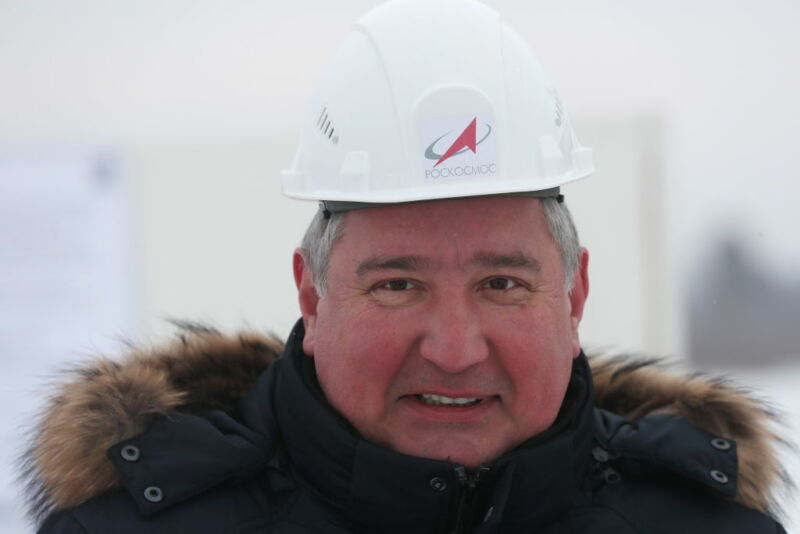
It has now been half a month since Russia invaded Ukraine, setting into motion a set of consequences that have reverberated around the world.
In the space domain, this has led to a severing of ties between the West and Russia. Space News, for example, tallied up 16 commercial launches that had been scheduled to fly on the Russian Soyuz rocket during the next two years. These payloads are now stranded, affecting customers ranging from the private company OneWeb, to the European Commission, to the government of Sweden. And the joint Europe-Russia probe scheduled to launch to Mars this year, ExoMars, will be delayed for years and may very well be canceled, sources say.
Naturally this has led to speculation about the fate of the International Space Station, which has 15 partner nations and is the crown jewel of unity in space between NASA and Russia. In recent days there have been a number of stories about Russian “threats” to abandon NASA astronaut Mark Vande Hei on the space station. Vande Hei is scheduled to return to Earth in a Soyuz capsule at the end of this month, landing in Kazakhstan. NASA officials are expected to be there to greet him and bring him back to the United States.
The source of this “news” appears to be a video published more than a week ago by a Kremlin-aligned publication, RIA Novosti. Roscosmos TV provided footage for the video, but in sharing it acknowledged that the video was a “joke.” Now, this is an exceptionally poor joke given the tensions on Earth, but it is important to understand that sharing a video a week ago does not mean Russia is threatening to leave Vande Hei behind. Nothing has changed since the video was posted.
Since the beginning of this crisis, NASA officials have said operations with Russian colleagues working on the space station have proceeded nominally. “Operations have not changed at all,” one NASA source confirmed Friday. On Monday, NASA’s manager of the International Space Program, Joel Montalbano, is scheduled to speak at a news conference about upcoming spacewalks. He likely will say something similar.
Additionally, Vande Hei could not be abandoned. At present there are three other Americans living on board the International Space Station—Raja Chari, Kayla Barron, and Thomas Marshburn. There is also an allied astronaut, Matthias Maurer, from Germany. NASA has its own transportation to and from the station, so Vande Hei can be assured of a safe ride home whenever NASA wants.
The status of the ISS partnership is subject to change, of course. It could do so quite quickly. Russia is doing horrible things in Ukraine, and the Western world has responded with harsh sanctions. No one really knows whether Vladimir Putin will decide to end Russian participation in the International Space Station. Certainly, making it appear to a domestic audience that he was stranding a NASA astronaut in space might make him look “strong” to some Russian people.
But there are simply no indications this will happen. The first step toward trouble in the ISS partnership probably would entail Russia recalling its cosmonauts training for future missions in the United States or NASA recalling its flight controllers in Moscow and astronauts at Star City. That has not happened.
For the reasons Ars outlined Monday in a feature on the International Space Station, it remains in the best interests of the United States and Russia to continue flying the station; and in the near term at least both sides need the cooperation of one another to keep going.
This doesn’t mean that the chief of Russia’s space program, Dmitry Rogozin, will not keep making bombastic and nationalistic statements on Twitter. He has been doing so since the war began and now has a “Russian Lives Matter” banner at the top of his Twitter feed. But Rogozin’s theatrical comments appear to be disconnected from reality. Someone who says refusing to launch the OneWeb satellites will cost the West $8 billion and not delivering Russian rocket engines will cost $4 billion is not saying rational things. In the case of the rocket engines, it probably will be a net gain for the West, as Northrop Grumman will now buy from US suppliers for its Antares rocket.
So Rogozin appears to be playing to his domestic audience. His behavior, certainly, is abhorrent to a Western audience. But it does not appear to be representative of many people in the Russian space program who continue the hard work of keeping a 20-year-old station, by far the largest spaceship humans have ever assembled in space, flying high.
https://arstechnica.com/?p=1840469

